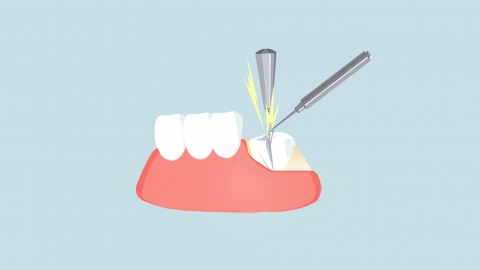What should I do if my front tooth has a cavity?
Caries refers to dental caries. Under normal circumstances, cavities in the front teeth may be related to dietary habits, poor oral hygiene, insufficient saliva secretion, pulpitis, bacterial infection, and other factors. Patients can alleviate symptoms through adjustments to their diet, improved oral hygiene habits, increased water intake, and medication. It is recommended that patients seek timely medical attention at a hospital and follow medical advice for treatment. A detailed analysis is as follows:

1. Dietary habits: Frequent consumption of high-sugar and acidic foods provides favorable conditions for bacterial growth, accelerating the formation of dental caries. Adjust the diet by reducing sugar and acidic food intake, and maintain regular oral hygiene and dental checkups.
2. Poor oral hygiene: Lack of effective brushing and flossing habits leads to plaque accumulation, increasing the risk of tooth decay. Improve oral hygiene practices by brushing teeth at least twice daily, using dental floss to clean between teeth, and undergoing regular professional dental cleanings.
3. Insufficient saliva secretion: Reduced saliva production weakens the mouth's natural cleaning ability and hampers effective neutralization of acids produced by bacteria. Symptoms may include dry mouth and dry oral mucosa. It is recommended to drink more water, chew sugar-free gum to stimulate saliva production, and avoid medications that cause dry mouth.
4. Pulpitis: When dental caries progresses to a certain stage, it may affect the dental pulp, causing pulp inflammation, which manifests as spontaneous pain and nighttime pain. Bacterial metabolism produces acid, which erodes the hard tissues of the teeth, forming cavities. It is recommended that patients use medications such as metronidazole tablets, tinidazole tablets, and cefixime capsules under a doctor's guidance to relieve pain.
5. Bacterial infection: Acidic substances produced by bacterial metabolism lower the oral pH, damaging the mineral structure of the tooth surface and leading to cavity formation. Small cavities can be repaired with filling materials; moderate to severe cases may require root canal treatment or tooth extraction followed by installation of dentures.
In daily life, it is important to undergo regular dental checkups and cleanings, and to use fluoride toothpaste and mouthwash.




